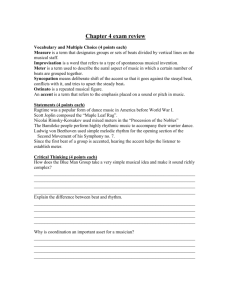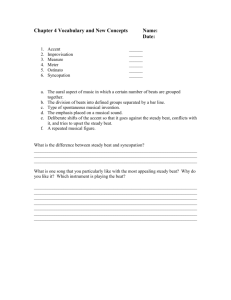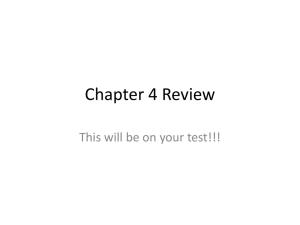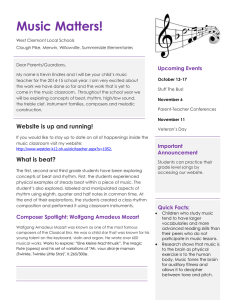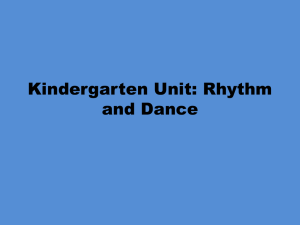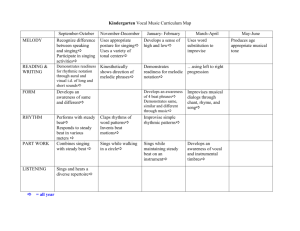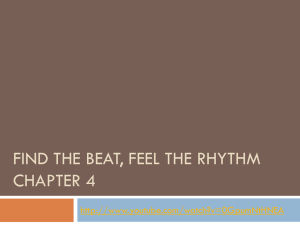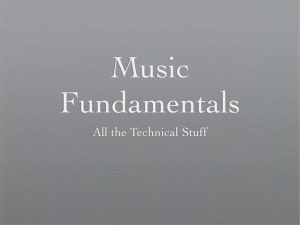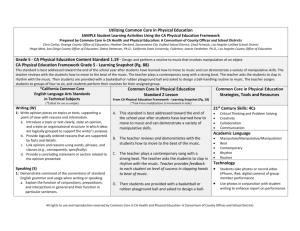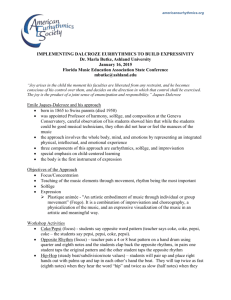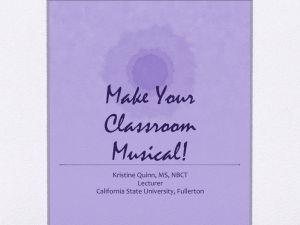Maple Leaf Rag - Bishop Ireton High School
advertisement
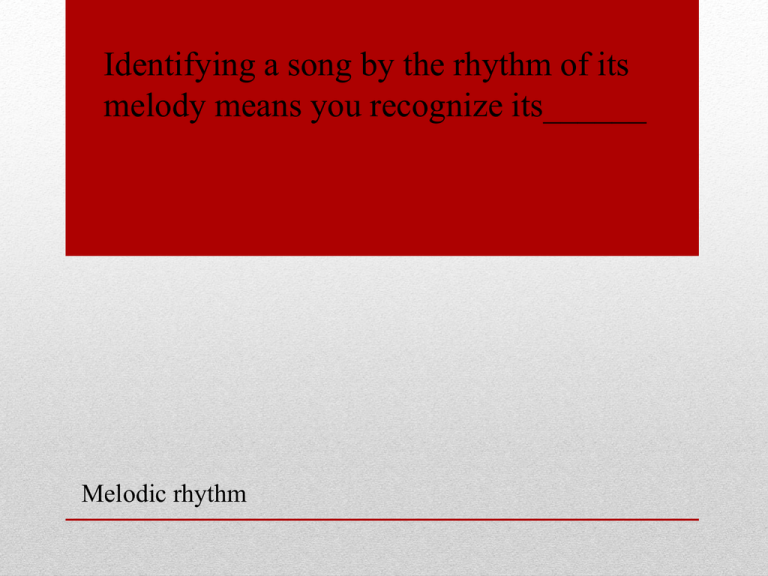
Identifying a song by the rhythm of its melody means you recognize its______ Melodic rhythm In class we listened to a symphony that had a very simple melodic rhythm. Who wrote this work? Beethoven Explain the difference between beat and rhythm. Beat is the steady recurring pulse Rhythm is the arrangement of notes around that steady pulse A term that refers to the emphasis placed on a sound or pitch in music. accent Explain the feeling created by syncopation. What causes this feeling? Upset the steady beat Accents occur on the weaker beats of the measures Deliberate shift of accent away from the steady beat Ragtime was popular in the United States prior to what war? WWI What term designates groups or sets of beats divided by vertical lines on the music staff? measure Name the instruments used in the “Lali” performed by the Bamileke people. N’to, n’ket, rattles, rattles What is a repeated musical figure called? ostinato Nicolai Rimsky-Korsakov used __________________ in “Procession of the Nobles” Mixed meter How does the Blue Man Group Take a very simple musical idea and make it sound richly complex? Driving subdivisions of the musical beat Since the first beat of a group is accented, Hearing the accent helps the listener establish the ________ meter What is a word to describe spontaneous musical invention, common in jazz. improvisation Why is coordination important for a musician? Helps keep more than one rhythm going at a time The Bamileke people perform highly rhythmic music to accompany their ______. Warrior dance What word means the deliberate shifts of the accent So that it goes against the steady beat, conflicts with it, And tries to upset the steady beat. syncopation What is a melodic ostinato? Repeated melodic figure Who composed the Maple Leaf Rag Scott Joplin What is the function of meter in music? Helps us organize the music in to smaller groups that we can organize into measures What is meant by the term mixed meter? Number of beats changes within one composition Describe rhythmic techniques used in STOMP to create interest & variety. Polyrhythm, syncopation, solo & tutti, accent, ritardando, accelerando, call & response, dynamic changes, improvisation
